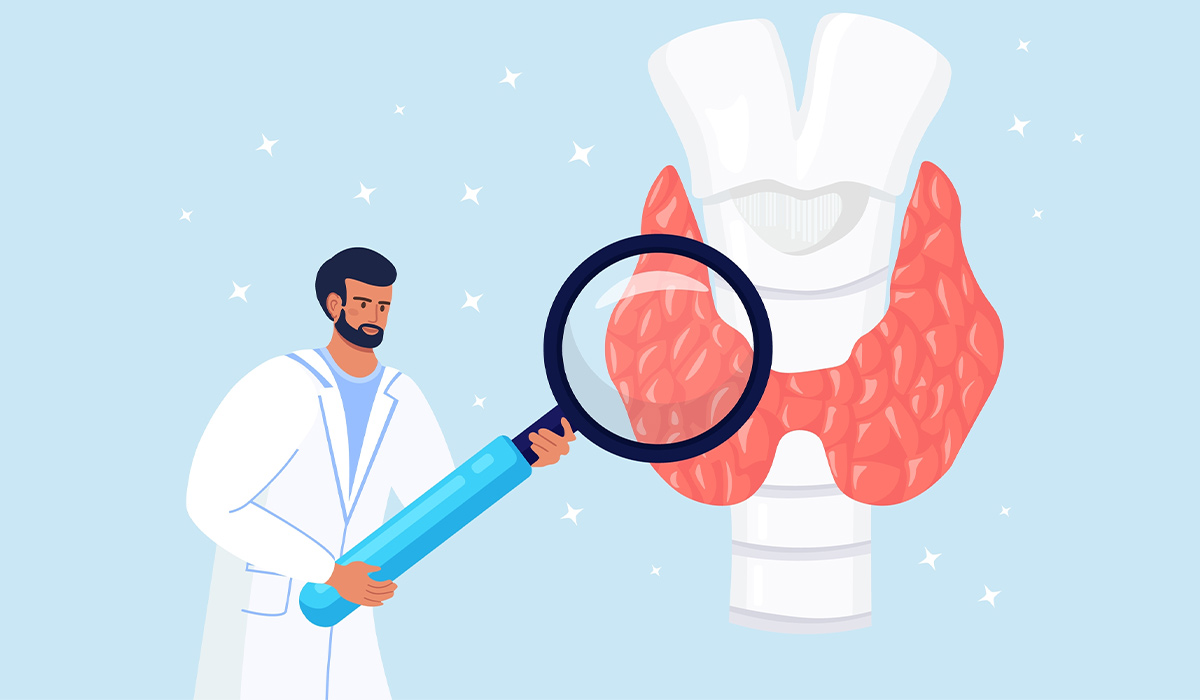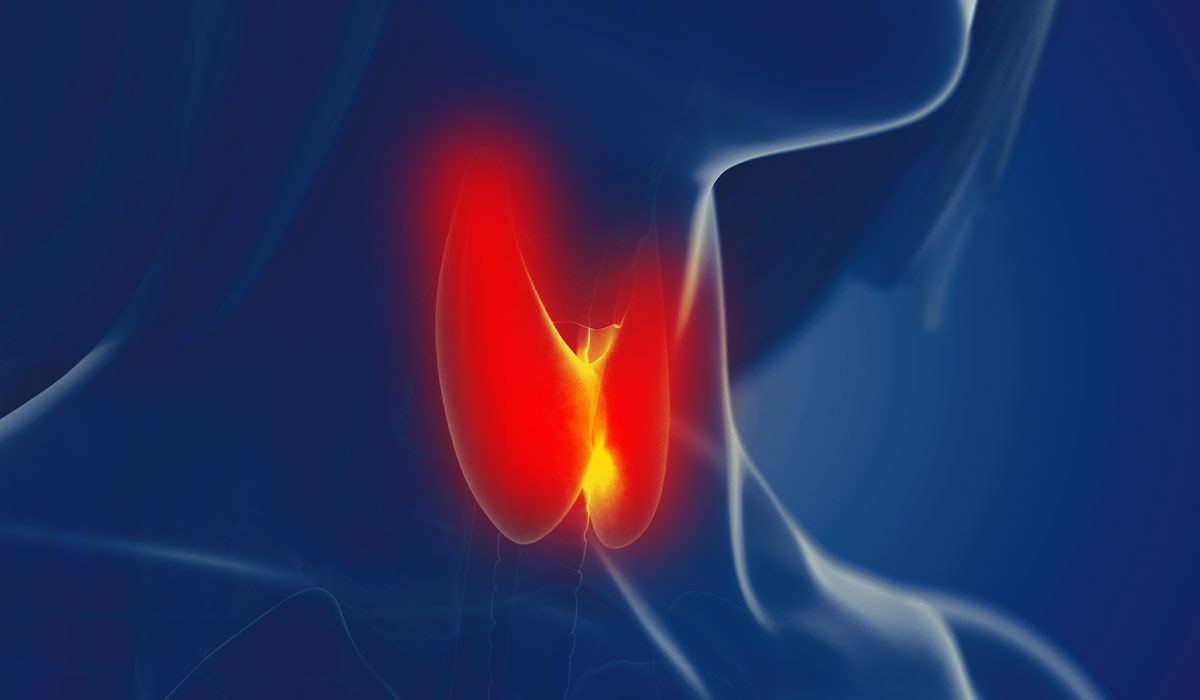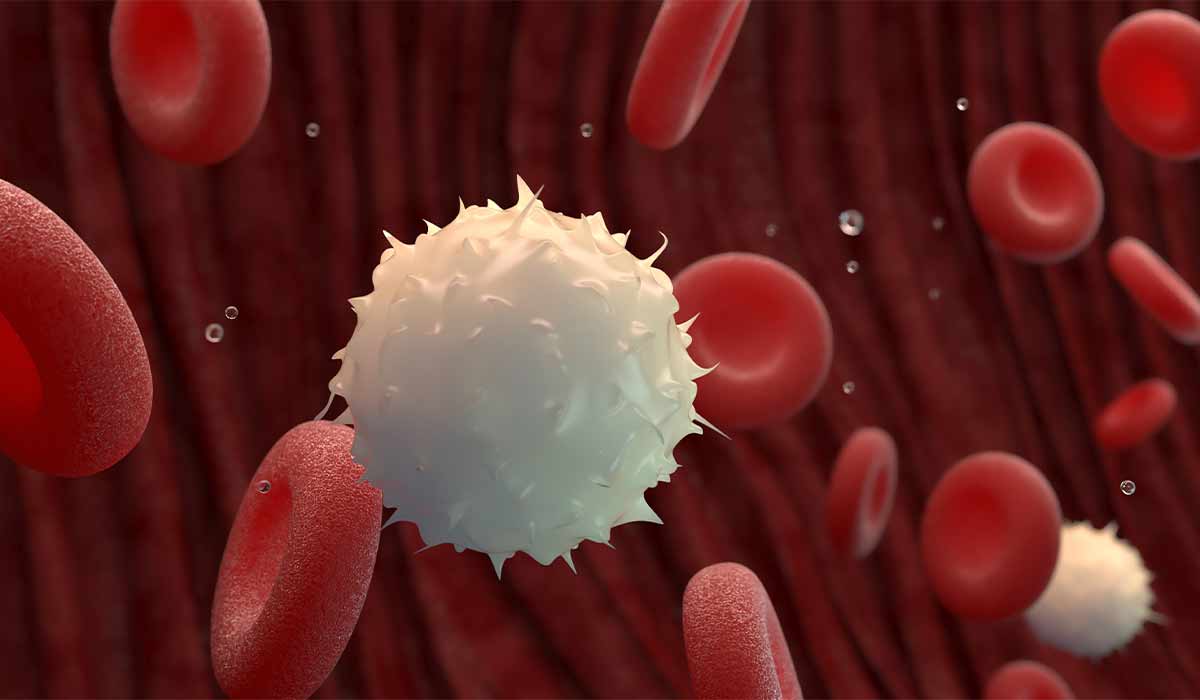Graves' Disease is one of many autoimmune diseases that affect various organs, glands, and systems throughout the human body. It targets the thyroid gland specifically, causing it to produce too many thyroid hormones – a condition known as hyperthyroidism.
Graves' disease leads to health problems such as mood changes, fatigue, muscle pain, weight loss, and digestive issues. If left untreated, it may cause severe complications, including brittle bones and heart disorders.
Autoimmune disorders and diseases are health conditions that make the immune system attack healthy tissue in the body. It is believed there are more than 80 such diseases, but according to recent studies, more autoimmune conditions exist that have yet to receive names. The affected area, system, or function varies depending on the disease.
In Graves' disease, the organ targeted by the immune system is the thyroid gland. The immune system produces antibodies called thyroid-stimulating immunoglobulins that attach to the cells of the thyroid gland. As a result, it stops working correctly and doesn't make an optimal amount of hormones.
The thyroid gland may produce too few hormones, a phenomenon known as hypothyroidism, but in Graves' disease, it makes too much, referred to as hyperthyroidism (overactive thyroid).
Many bodily functions speed up after too many thyroid hormones are released. For instance, body temperature, nervous system, brain functions, and digestive system stop working correctly, which can cause many symptoms. Moreover, if metabolism is affected, one issue may lead to another, causing a chain reaction. Because of this, seeking medical treatment for Graves' disease is vital after the initial onset of warning signs and symptoms.
Scientists know the course of Graves's disease, but the exact reasons why it occurs are unknown![]() . Thus far, it has been determined that the immune system produces thyroid-stimulating immunoglobins instead of regular antibodies to protect the body from harmful bacteria, viruses, and other foreign substances that may damage healthy tissues.
. Thus far, it has been determined that the immune system produces thyroid-stimulating immunoglobins instead of regular antibodies to protect the body from harmful bacteria, viruses, and other foreign substances that may damage healthy tissues.
Some factors may play a role in developing this autoimmune condition. The causes that are suspected the most include:
Graves' disease causes a large variety of health problems, affecting both physical and mental health. The below list consists of the most common symptoms![]() that are associated with this condition:
that are associated with this condition:
In some cases, the above symptoms of Graves' disease can change their intensity or go away on their own after several months or years. However, it is unlikely to get rid of this condition without treatment. In the best-case scenario, Graves' disease won't cause severe symptoms or lead to complications, but it is not worth the risk to leave it untreated. At some point in life, problems related to Graves' disease may resurface and pose a grave threat to health.

Also called Graves' orbitopathy, Graves' ophthalmopathy is a condition that affects the eyes. It occurs in 30 to 80 percent of people![]() affected by Graves' disease. Vision and eye problems it may cause include:
affected by Graves' disease. Vision and eye problems it may cause include:
The severity of these symptoms is mild for most people. They can develop before or simultaneously with other symptoms caused by Graves' disease, but in some people, they appear after the condition is treated.
Skin problems caused by Graves' disease are referred to as Graves' dermopathy![]() . They are considered rare, as they are usually not observed in people with Graves' disease. Characteristic symptoms include:
. They are considered rare, as they are usually not observed in people with Graves' disease. Characteristic symptoms include:
Symptoms that affect the skin add to the already many health problems caused by Graves' disease. Fortunately, these are mild or painless for most people.
If Graves' disease is left untreated or poorly managed, additional health problems may develop. The below complications have been observed in this disease:
Osteoporosis (Brittle Bones). Weakness of bones or abnormal thinning of bones is called osteoporosis. Too many released hormones interfere with the calcium distribution processes. It can, for instance, lower the amount of calcium and minerals in the bones, weakening them. As a result, the chance of bone fractures is higher than usual.
Heart Disorders. Untreated Graves' disease may lead to arrhythmia (irregular heartbeat). People with arrhythmia are more likely to have heart failure (not enough blood pumped by the heart) or stroke. Other heart problems also include changes in the function and structure of heart muscles.
Pregnancy Issues. Graves' disease can cause much harm during pregnancy, especially if managed improperly or ignored. Because thyroid hormones play a vital role in developing a fetus's brain and nervous system, Graves' disease may cause health issues for both mother and fetus. During pregnancy, an excess amount of thyroid hormones may lead to:
Thyroid Storm![]() . The rare complication of Graves' disease – thyroid storm – is a life-threatening condition sometimes called thyrotoxic crisis or accelerated hyperthyroidism. It occurs when hyperthyroidism causes severe symptoms and is untreated or managed inadequately.
. The rare complication of Graves' disease – thyroid storm – is a life-threatening condition sometimes called thyrotoxic crisis or accelerated hyperthyroidism. It occurs when hyperthyroidism causes severe symptoms and is untreated or managed inadequately.
An extreme form of hyperthyroidism is caused by a sudden flood of thyroid hormones in the body's organs. The following symptoms are linked to thyroid storm:
A thyroid storm is a condition that requires immediate medical care. Otherwise, it may lead to a coma or even death. If you experience the above symptoms, seek emergency care immediately.
Rarely, Graves' disease may also result in changes in vision, eye discomfort, and muscle problems.
So, who is more likely to develop Graves's disease? Anyone can be affected by an autoimmune disorder, regardless of sex and age. However, when it comes to Graves's disease specifically, women younger than 30 are at a higher risk![]() of suffering from this health condition.
of suffering from this health condition.
Like other disorders that may affect the thyroid, autoimmune diseases occur more often among women, which is believed to be caused by women's hormones that respond to stress differently than men's. Because of this, there are seven to eight times more female patients of Graves's disease than men.
In addition to being a woman, several other factors may be involved in developing Graves's disease:
Having other autoimmune disorders also increases the risk. These include:
Diagnosing Graves' disease combines the data acquired from your medical history, family history, physical exam, and signs of thyroid disease. Your healthcare provider may also order some of the following tests to confirm the diagnosis or rule out other conditions that cause similar symptoms:
Radioactive iodine uptake![]() . In this test, a patient is required to take a small amount of radioactive iodine orally. The thyroid gland uses iodine to produce hormones. Using a specialized camera, a doctor can determine if the thyroid gland absorbs iodine correctly. Depending on the absorption rate, graves' disease or other conditions may be confirmed or ruled out by a doctor.
. In this test, a patient is required to take a small amount of radioactive iodine orally. The thyroid gland uses iodine to produce hormones. Using a specialized camera, a doctor can determine if the thyroid gland absorbs iodine correctly. Depending on the absorption rate, graves' disease or other conditions may be confirmed or ruled out by a doctor.
Blood tests. Thyroid blood tests and thyroid antibody blood tests help determine the levels of thyroid-stimulating hormone, thyroid-stimulating antibodies, and thyrotropin-binding inhibitory immunoglobulins.
Ultrasound test. Known as Doppler blood flow measurement or Doppler ultrasound, a test that includes high-frequency sound waves is used to create images of the body's inner structures. This test can help to determine if the thyroid gland is enlarged. It is usually recommended for pregnant women who can't undergo radioactive iodine uptake.
Imaging tests. CT scan or MRI may be ordered as additional tests if the clinical assessment is insufficient.

The treatment for Graves' disease aims to decrease the production of thyroid hormones by the thyroid gland and reduce its adverse effects on the body. Conventional methods can't cure Graves' disease completely but help maintain adequate levels of thyroid hormones. Sometimes, the symptoms may go away for an unspecified amount of time. Thus far, the below treatment options are considered to be the most effective:
Grave's disease is a condition that is manageable and treatable with adequate medications and therapies. It may cause severe health issues such as life-threatening, extreme hyperthyroidism, and heart issues. Fortunately, the most severe problems occur if the disease is left untreated.
The causes of this autoimmune condition remain unknown. Scientists believe that stress, viral infections, or genetics may be contributing factors that cause the immune system to malfunction.
If you are not experiencing symptoms of Grave's disease but have a family history of conditions affecting the thyroid, contact a healthcare specialist to determine if your thyroid produces the correct amount of hormones.
Table of Contents

Hyperthyroidism is a condition in which the body produces too many hormones. This causes various symptoms and complications. Check out… read more »

Hypothyroidism is a disease caused by insufficient levels of hormones produced by the thyroid gland. Find out, what are the… read more »

The thyroid is an endocrine gland. What hormones does it produce? Learn what are most popular thyroid diseases and what's… read more »

The thyroid is a small organ whose hormones regulate the body's metabolism. Check what are the signs of thyroid problems.… read more »

Goiter is an enlargement of this gland. It is not a disease itself, but rather a symptom of a medical… read more »

Also known as Hashimoto's thyroiditis and chronic autoimmune thyroiditis, Hashimoto's disease is an autoimmune condition that causes the immune system… read more »

Hashimoto's disease is an autoimmune disease. May cause hypothyroidism. Check what are the symptoms of Hashimoto's disease and how it… read more »

Autoimmune diseases are conditions in which the immune system works incorrectly – it begins to attack the body's tissues. What… read more »

An endocrinologist is a doctor who deals with the organs that secrete hormones. Learn about diseases that are related to… read more »